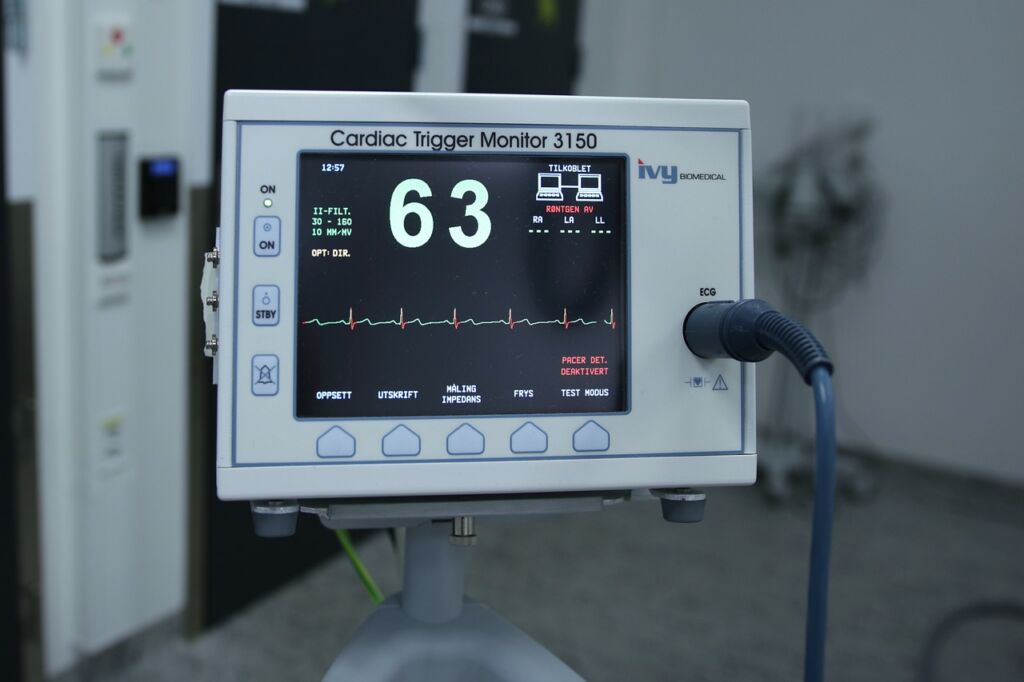Are you a biotechnology professional looking to advance your career? Finding the right job opportunity in the biotech industry can be a challenging task, but a biotechnology headhunter can help simplify the process. However, before you engage the services of a headhunter, it is important to ask the right questions to ensure they are the right fit for your needs. In this article, we will explore six essential questions to ask a biotechnology headhunter to help you make an informed decision and maximize your chances of success in your job search.
When it comes to finding the right job in the biotechnology industry, experience and track record are crucial factors to consider. By asking a biotechnology headhunter about their experience and track record in the field, you can gain insight into their expertise and knowledge of the industry. Additionally, inquiring about their network and connections within the biotech field can provide valuable information on their ability to access a wide range of job opportunities. By asking these questions, you can ensure that the headhunter you choose has the necessary experience and connections to help you navigate the competitive biotech job market effectively.
1. Experience and Track Record in the Biotechnology Industry
When it comes to finding the right biotechnology headhunter, it’s crucial to ask about their experience and track record in the industry. You want to ensure that the headhunter you choose has a deep understanding of the biotechnology field and can effectively navigate the unique challenges and opportunities that come with it. Ask about the number of years they have been working in biotechnology recruitment and the specific roles they have filled in the past. A headhunter with a solid track record will be able to provide examples of successful placements they have made in biotech companies, demonstrating their ability to identify and attract top talent in the industry.
Additionally, inquire about their relationships with key players in the biotechnology sector. A reputable headhunter will have established connections with industry leaders, including hiring managers and executives at biotech companies. These relationships can greatly benefit you as a job seeker, as the headhunter will have access to exclusive job opportunities and insider knowledge about the industry. It’s important to choose a headhunter who not only has experience in biotechnology recruitment but also has a strong network within the industry to maximize your chances of landing a desirable position. By asking about their experience and track record, you can assess whether the headhunter has the necessary expertise and connections to assist you in your biotech career.
2. Network and Connections within the Biotech Field
Establishing a wide network and cultivating strong connections is crucial for you to thrive in the ever-evolving biotech field. As a biotechnology headhunter, it is important to inquire about the candidate’s network and connections within the industry. By asking questions such as, “Can you describe your current network within the biotech field? “or “How do you stay connected with professionals in the industry?”, you can gauge the headhunter’s level of engagement and involvement in the biotech community. A headhunter who has a broad network and strong connections can provide valuable insights, access to top talent, and a deeper understanding of the industry trends and dynamics.
Moreover, inquiring about the headhunter’s involvement in professional organizations or industry events can further highlight their commitment to building connections within the biotech field. Questions like, “Have you attended any biotech conferences or events recently? “or “Are you a member of any biotech-related associations?” can provide insights into their level of engagement and their ability to stay updated with the latest advancements and opportunities in the field. A headhunter with a robust network and active involvement in industry events can leverage their connections to identify suitable candidates and offer valuable guidance throughout the hiring process.
3. Success Stories and Filled Positions
One way to gain insight into a headhunter’s effectiveness is by learning about their track record of successfully placing candidates in key positions within the biotech industry. It is important to ask the headhunter about their success stories and the specific positions they have filled. This will give you a sense of their expertise and ability to match candidates with the right opportunities. Ask for details about the candidates they have placed, such as their background, experience, and the companies they now work for. Additionally, inquire about the time it took to fill these positions and any challenges they encountered along the way. By asking these questions, you can assess the headhunter’s track record and determine if their past successes align with your own career goals and aspirations in the biotech field.
Furthermore, it can be beneficial to inquire about the headhunter’s approach to finding and placing candidates. Ask about the strategies they employ to identify potential candidates, such as networking, referrals, or utilizing online platforms. Understanding their methods will give you an idea of how proactive and resourceful they are in their search. Additionally, ask about their relationships with key players in the biotech industry, such as hiring managers and executives. A headhunter with strong connections can often provide access to exclusive job opportunities and increase your chances of landing a desirable position. Overall, by learning about the headhunter’s success stories and their approach to filling positions, you can gain valuable insights into their effectiveness and determine if they are the right fit for your biotech career aspirations.
4. Approach to Matching Candidates with Job Opportunities
A critical factor in determining a headhunter’s effectiveness is their ability to effectively match candidates with the right job opportunities in the biotech industry. Biotechnology is a specialized field that requires a unique set of skills and knowledge. A skilled headhunter should have a thorough understanding of the industry and the specific requirements of different biotech roles. They should be able to assess a candidate’s qualifications, experience, and career goals, and match them with suitable job opportunities that align with their skills and aspirations. This requires a deep understanding of the biotech industry, including the specific skills and qualifications that employers are looking for in candidates. A successful headhunter will have a strong network of contacts within the industry, enabling them to identify and connect with top talent in the field.
Furthermore, an effective headhunter should also have excellent communication and interpersonal skills. They should be able to build relationships with both candidates and employers, understanding their needs and preferences. By developing a strong rapport with candidates, headhunters can gain insight into their career aspirations, allowing them to find job opportunities that align with their goals. On the other hand, they should also have a good understanding of the needs and requirements of employers, ensuring that they can effectively communicate the value that a candidate brings to the table. By acting as a bridge between candidates and employers, a skilled headhunter can help facilitate successful matches that benefit both parties. In conclusion, the ability to match candidates with the right job opportunities is a crucial skill for a biotechnology headhunter. It requires a deep understanding of the industry, strong communication skills, and a well-developed network of contacts.
5. Communication and Feedback during the Job Search Process
During the job search process, effective communication and feedback are essential for candidates to navigate their way in the biotech industry. Biotechnology headhunters play a crucial role in this process by acting as a liaison between candidates and potential employers. They should provide timely and clear communication to keep candidates informed about the status of their applications, interviews, and any updates or changes in the job search process. Regular feedback should also be given to candidates, whether they are progressing through the hiring process or not. This feedback can help candidates understand their strengths and weaknesses, and make necessary improvements for future opportunities. It is important for biotechnology headhunters to establish open lines of communication with candidates, ensuring that they feel supported and informed throughout the job search process.
In addition to clear communication, biotechnology headhunters should also provide constructive feedback to candidates. This feedback can be invaluable in helping candidates understand the areas they need to improve on and how to better position themselves for future opportunities. By providing specific feedback on interview performance, resume and cover letter, and overall fit for the role, headhunters can help candidates develop a better understanding of what employers are looking for. This information can be used to refine their job search strategy and tailor their applications to specific roles. By giving candidates timely and constructive feedback, biotechnology headhunters can empower them to make meaningful improvements and increase their chances of success in the competitive biotech industry.
6. Fees and Payment Structure
After discussing the importance of communication and feedback during the job search process with a biotechnology headhunter, it is essential to delve into another crucial aspect: fees and payment structure. Understanding the financial arrangements with a headhunter is vital for both job seekers and employers alike. By asking the right questions, you can gain clarity on the fees associated with their services and ensure that the payment structure aligns with your expectations and budget.
When communicating with a biotechnology headhunter, it is crucial to inquire about their fee structure. Some headhunters charge a flat fee, while others may have a tiered structure based on the level of the position being filled. By understanding their fee structure, you can assess whether it aligns with your budget and determine if the value they provide justifies the cost. Additionally, it is essential to clarify if the fee is contingent or non-contingent. Contingent fees are typically paid only if a candidate is successfully placed in a job, while non-contingent fees may be required regardless of the outcome. Understanding these payment terms will help you make an informed decision and avoid any surprises later on.
Moreover, it is important to discuss the payment timeline and any additional expenses that may be incurred during the job search process. Inquire about when the payment is expected, whether it is upfront or upon successful placement. Additionally, ask if there are any additional costs, such as travel expenses or background checks, that may be passed onto you as the job seeker. By clarifying these details upfront, you can ensure that there are no financial surprises along the way and have a clear understanding of the total investment required for their services. Overall, discussing fees and payment structure with a biotechnology headhunter is essential to ensure transparency and align expectations, allowing for a smooth and mutually beneficial partnership.
Frequently Asked Questions
How long does the biotechnology headhunter typically take to fill a position?
The time it takes for a biotechnology headhunter to fill a position can vary depending on factors such as the complexity of the role, the availability of qualified candidates, and the specific needs of the company.
Can the biotechnology headhunter provide references from previous clients?
Yes, the biotechnology headhunter should be able to provide references from previous clients. This will give you insight into their track record and the satisfaction of their past clients.
How does the biotechnology headhunter stay updated on industry trends and developments?
The biotechnology headhunter stays updated on industry trends and developments by attending conferences, participating in professional organizations, and actively networking with industry experts and professionals.
What is the biotechnology headhunter’s approach to handling confidential job searches?
The biotechnology headhunter prioritizes confidentiality in job searches by implementing strict protocols to protect sensitive information and ensuring that only relevant parties are involved in the process.
How does the biotechnology headhunter handle disagreements or conflicts between candidates and employers during the hiring process?
The biotechnology headhunter handles conflicts between candidates and employers during the hiring process by acting as a mediator and finding a resolution that satisfies both parties involved, ensuring a smooth and successful hiring process.
Conclusion
In conclusion, when working with a biotechnology headhunter, it is essential to ask a series of key questions to ensure a successful partnership. Firstly, inquire about their experience and track record in the biotechnology industry to gauge their knowledge and understanding of the field. Additionally, ask about their network and connections within the biotech industry to determine their ability to access top talent and job opportunities. It is also important to ask about their success stories and filled positions to ascertain their track record of placing candidates in desirable roles.
Furthermore, understanding the headhunter’s approach to matching candidates with job opportunities is crucial. This will give you insight into their methods and how they will find the best fit for your skills and career goals. Additionally, inquire about their communication and feedback process during the job search to ensure a smooth and transparent experience. Lastly, it is essential to discuss the headhunter’s fees and payment structure to ensure it aligns with your budget and expectations. By asking these questions, you can make an informed decision when selecting a biotechnology headhunter who will effectively assist you in finding the right job opportunity in the industry.



